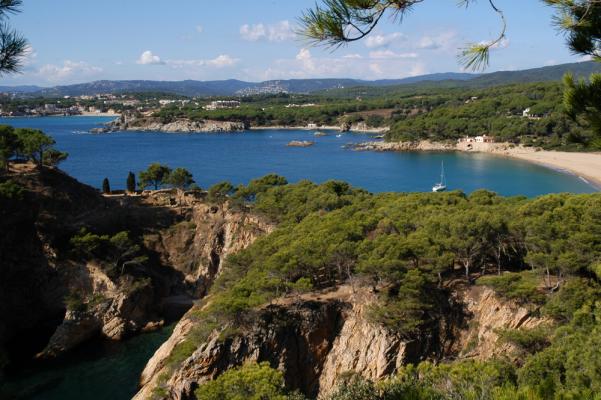Want to learn more about Palamos, Spain? Read on for facts and info on this Mediterranean port town in the province of Girona…
Situated along the Mediterranean coast of Costa Brava, Palamos is one of the most beautiful coastal towns of Spain. The region is also considered to be a municipality for the country. The exact location of the town faces the comarca of Baix Emporda which falls within the province of Girona, Catalonia.
This historic town was founded many centuries ago by Pere el Gran who was more popularly known as Peter III of Aragon. Palamos acquired the official status of a village town on 3 December 1279. The objective for founding this village was the need to establish a new port town on the coast. There was dire need for such a port town because the previous royal port that was situated in the region of Torreoella de Montgri had given way to the silting of the River Ter and was of no further use. The strategic location of Palamos made it the ideal choice for the new port city.
Located at the northern end of a massive bay, the waters of Palamos are considered to be an ideal swimming place. A wide variety of water sports are also available in the area. The activities of sailing and windsurfing in particular are very popular. In order to facilitate the influx of seasonal travelers the Spanish government has developed a comprehensive road network which connects all the coastal towns of Costa Brava with the rest of the province of Girona. Palamos, in this instance connected by the C32 bypass. The coastal town of Palafrugell can be reached by traveling a distance of 8.5 km towards the north. Similarly the town of Castell-Platka d’Aro is located about 7 km to the south.
Palamos has been established as a major port. It is of great importance to Spain as it is the only commercial harbor in the entire province of Girona following the closure of Sant Feliu. It also has one of the last remaining fishing fleets of Spain in this particular section of the Mediterranean coast. The fishing port is famous for its exquisite collection of prawns that are caught in great abundance by the local fishermen.
The economy of the coastal town was largely dependent upon the fishing and cork manufacturing industries up until the mid 20th century. In the 1960s the tourism industry of Palamos experienced a significant boost making it one of the highest revenue earning industries for the region. Over the passage of time Palamos has managed to retain its traditional architecture which adds charm to the region. However the Spanish government has initiated major developments in the southern region of Sant Antoni de Calonge which has now been merged with Palamos itself.
The town also has its own local football club by called Palamos CF. Some prominent Spaniards such as the renowned pioneer of Esperanto Literature, Frederic Pujala I Valles hailed from this part of Spain.





